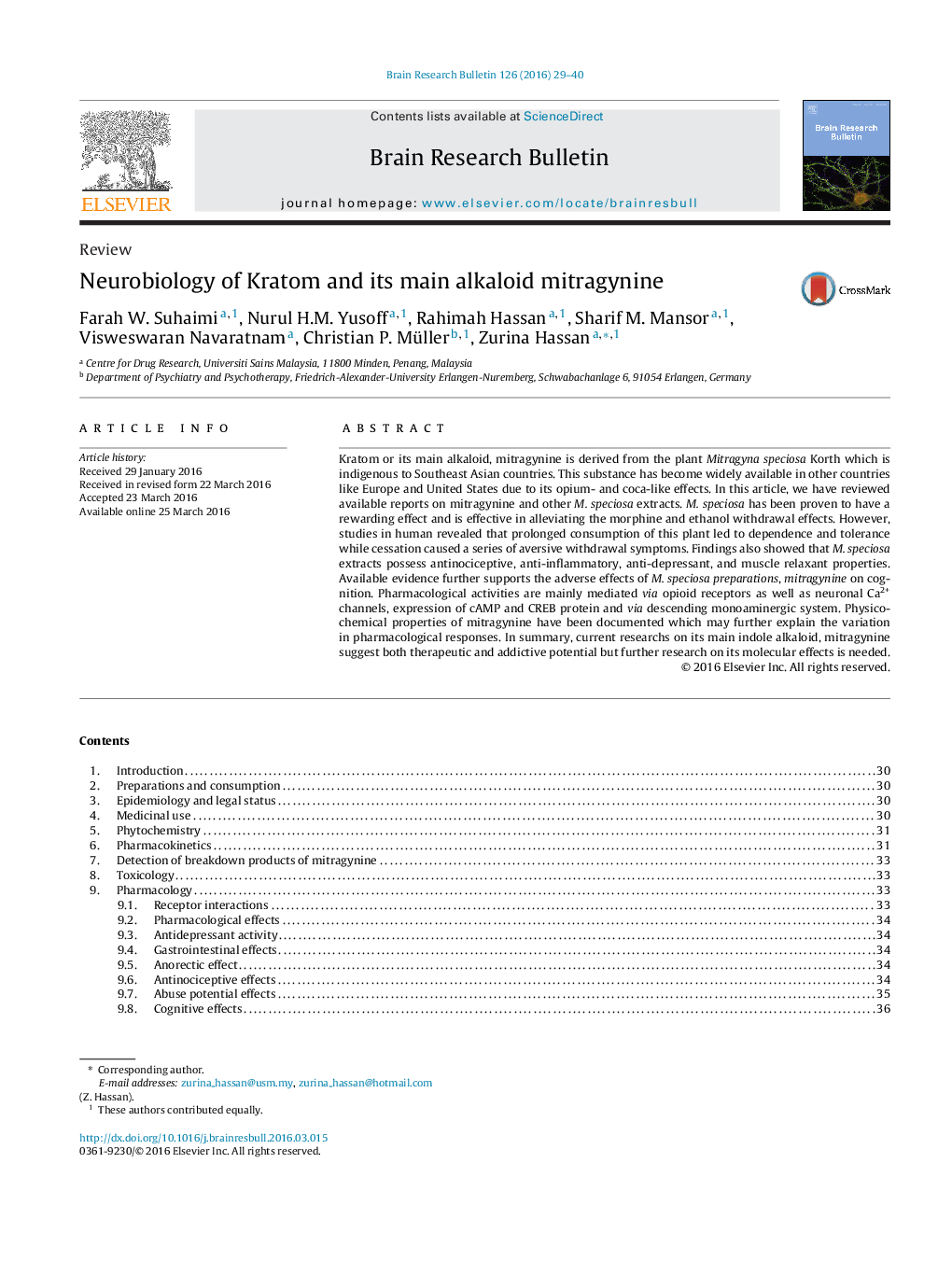| Article ID | Journal | Published Year | Pages | File Type |
|---|---|---|---|---|
| 4318627 | Brain Research Bulletin | 2016 | 12 Pages |
•Mitragynine is the psychoactive compound of M. speciosa Korth.•Mitragynine possesses addictive liabilities and impairs cognition.•Mitragynine alleviates the withdrawal symptoms.•Mitragynine exhibits potential medical applications.•Variability pharmacological effects may due to its physicochemical properties.
Kratom or its main alkaloid, mitragynine is derived from the plant Mitragyna speciosa Korth which is indigenous to Southeast Asian countries. This substance has become widely available in other countries like Europe and United States due to its opium- and coca-like effects. In this article, we have reviewed available reports on mitragynine and other M. speciosa extracts. M. speciosa has been proven to have a rewarding effect and is effective in alleviating the morphine and ethanol withdrawal effects. However, studies in human revealed that prolonged consumption of this plant led to dependence and tolerance while cessation caused a series of aversive withdrawal symptoms. Findings also showed that M. speciosa extracts possess antinociceptive, anti-inflammatory, anti-depressant, and muscle relaxant properties. Available evidence further supports the adverse effects of M. speciosa preparations, mitragynine on cognition. Pharmacological activities are mainly mediated via opioid receptors as well as neuronal Ca2+ channels, expression of cAMP and CREB protein and via descending monoaminergic system. Physicochemical properties of mitragynine have been documented which may further explain the variation in pharmacological responses. In summary, current researchs on its main indole alkaloid, mitragynine suggest both therapeutic and addictive potential but further research on its molecular effects is needed.
